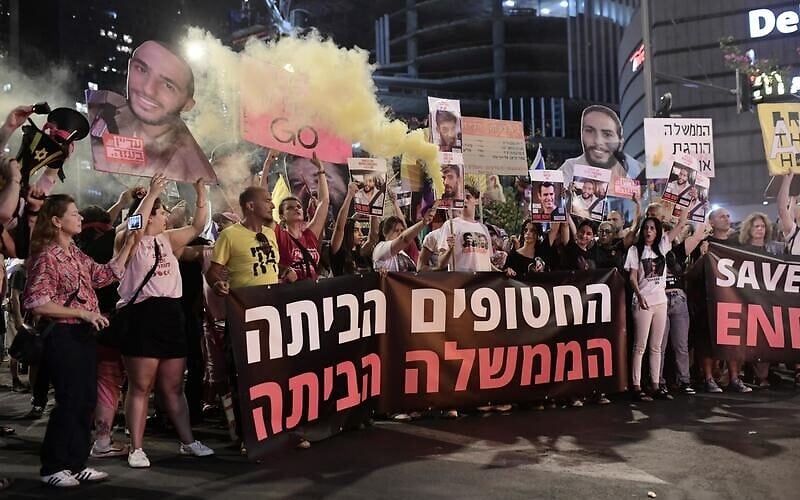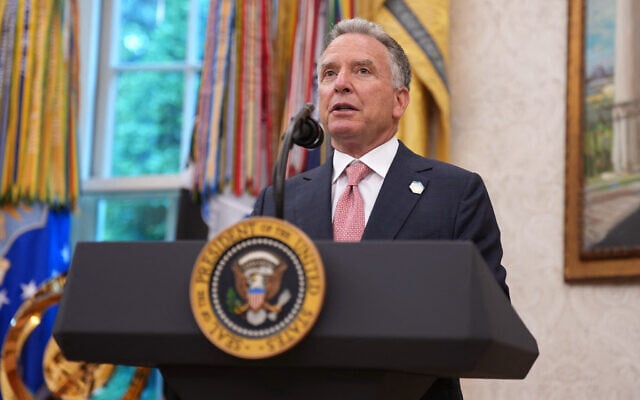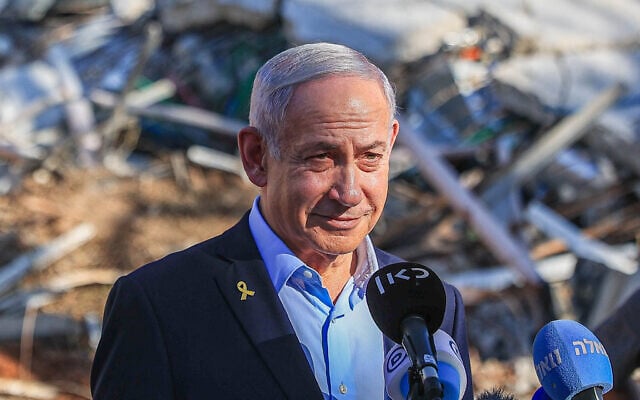



The United States and Qatar said Wednesday that the fragile, day-old ceasefire in Iran has created an opportunity to advance truce-hostage talks they are mediating between Israel and Hamas in Gaza.
Qatari Foreign Ministry spokesman Majed Al Ansari told CNN that Doha has been in touch with “all sides” of the truce-hostage talks, in a bid to capitalize on the momentum from the Israel-Iran ceasefire, echoing similar comments made by the US president.
“This is the time now for President Trump to push for it and we believe he is sincere about it,” said Ansari. “We are willing to help on that.”
“There was momentum created by the ceasefire in Iran and Israel,” he continued, “but we’re not out of the woods yet. There are a lot of details that I can’t discuss right now about the deal in place but I can tell you it’s the same parameters that keeps going in and out of the talks.”
Ansari also called Iran’s retaliatory strike on a US military base inside of Qatar a “scar on the relationship” of Doha with Tehran.
Ansari’s comments on the Gaza talks followed those by Qatari Prime Minister Mohammed bin Abdulrahman bin Jassim Al-Thani on Tuesday that “discussions are ongoing” with both Israel and Hamas, based on an unspecified US proposal.
Meanwhile, speaking at a NATO summit in The Hague on Wednesday, US President Donald Trump said the American attack on Iran’s nuclear facilities on Sunday had led to “great progress” in the Gaza ceasefire talks.
“I think that because of this attack that we made… we’re going to have some very good news,” he said. “Gaza is very close.”
On Wednesday, Hamas official Taher al-Nunu told AFP that talks had “intensified.”
“Our communications with the brother mediators in Egypt and Qatar have not stopped and have intensified in recent hours,” said al-Nunu.
He cautioned, however, that the group had “not yet received any new proposals” to end the war.
The Israeli government declined to comment on any new ceasefire-hostage talks beyond saying that efforts to return Israeli hostages in Gaza were ongoing “on the battlefield and via negotiations.”
The talks have largely stalled since late May, when Hamas gave what the US said was an “unacceptable” response to a proposal by White House special envoy Steve Witkoff.
The proposal included a 60-day truce in the Gaza Strip, partial Israeli military withdrawal and increased humanitarian aid deliveries, in exchange for the release of 10 living hostages and 18 deceased hostages.
Hamas’s response to the offer included a demand that would make it more difficult for Israel to resume fighting if talks on a permanent ceasefire were not completed by the end of the 60-day truce.
It also envisioned the release of the 10 living hostages being spread out throughout the truce, rather than in two batches on the first and seventh day as the US offer had stipulated.
A previous ceasefire-hostage deal collapsed on March 2, when its 42-day first phase ended amid Prime Minister Benjamin Netanyahu’s refusal to negotiate the second phase. The second phase would have required a full IDF withdrawal from Gaza — a red line for the premier’s far-right coalition partners.
Israel renewed hostilities in Gaza on March 18, and Netanyahu has vowed to keep fighting in Gaza until Hamas is vanquished.
Days before Israel’s June 13 opening strike on Iran, Netanyahu said there had been “significant progress” in hostage talks, though an Arab official familiar with the developments told The Times of Israel that there had been no such progress.
Terror groups in Gaza are holding 50 hostages, including 49 abducted on October 7, 2023, when thousands of Hamas-led terrorists stormed southern Israel to kill some 1,200 people and take 251 hostages, sparking war in the Strip. Hamas is also holding the body of an IDF soldier killed fighting in the 2014 Gaza war.
At least 28 of the remaining hostages have been confirmed dead by the IDF. Twenty are believed to be alive and there are grave concerns for the well-being of two others, Israeli officials have said.
Hamas released 30 hostages — 20 Israeli civilians, five soldiers, and five Thai nationals — and the bodies of eight slain Israeli captives during the ceasefire that ended in March, and one additional hostage, a dual American-Israeli citizen, in May as a “gesture” to the US. The terror group also freed 105 civilians during a weeklong truce in late November 2023, and four hostages were released before that in the early weeks of the war.
In exchange, Israel has freed some 2,000 jailed Palestinian terrorists, security prisoners, and Gazan terror suspects detained during the war.
Eight hostages have been rescued from captivity by troops alive, and the bodies of 49 have also been recovered, including three mistakenly killed by the Israeli military as they tried to escape their captors, and the body of a soldier who was killed in 2014.
Jacob Magid and AFP contributed to this report.




